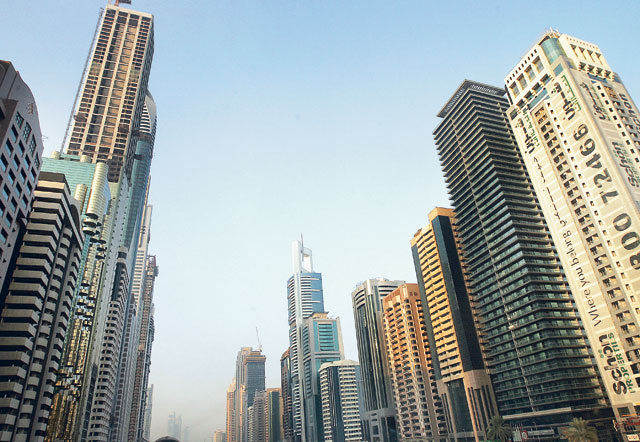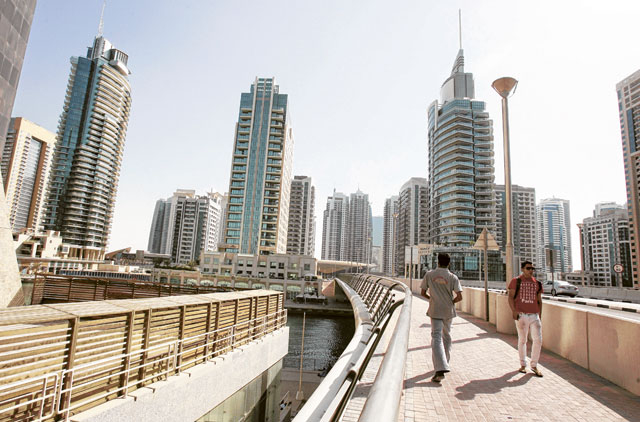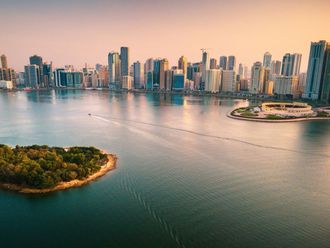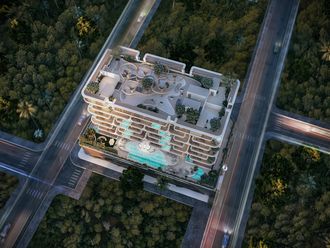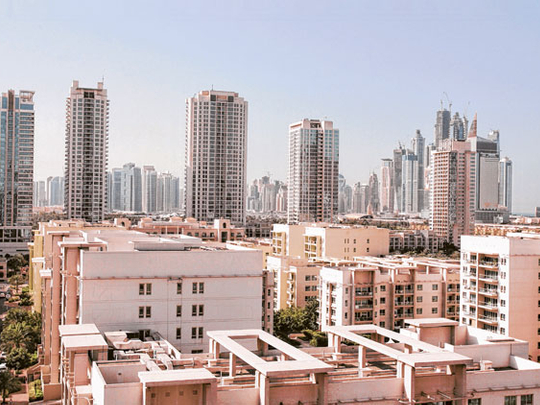
Dubai: Developers of all those residential high-rise projects on Shaikh Zayed Road hurtling towards completion have an eye out for potential tenants in Dubai and Sharjah... and from Abu Dhabi.
The lifeline provided to Dubai's rental market by those working in the capital yet preferring to live here is still very much there. And the great migration continues.
"People are moving around the emirates, particularly those from Sharjah to Dubai and out of Abu Dhabi to Dubai Marina," said Jonathan Fothergill at Cluttons Middle East. Apart from Dubai Marina, the JLT cluster is another out to attract white-collar workers from Abu Dhabi.
Given Dubai's looming residential oversupply, landlords are not going to be very concerned about where their tenants are coming from. As long as they keep coming, they are out to make the best of what they can deal with.
In fact, Abu Dhabi developers may be aiding the cause of their counterparts in Dubai. The projected supply of new stock that was expected to come out during 2010 in the capital did not materialise.
"The slowing down and cancellation of projects have [affected] the timing of new stock additions," Fothergill added.
Overall supply
According to Chesterton International estimates, the overall supply in Abu Dhabi will be between 3,000 to 4,000 units, which are inclusive of the non-freehold locations in the city.
"This is way below the demand levels which are estimated to be circa 30,000 per annum," said Simon Gray, the regional head at the firm.
Going forward, the Reem Island development will be central to Abu Dhabi's residential market playing catch up on supply.
The Marina Square with its 4,500 units will be ready as will some of the other high-rises on the Island. Together, these will add around 10,000 units, according to Chesterton International.
According to Chesterton International, of the original eight elements in Al Raha Beach, only Al Bandar has been handed over so far. Al Zeina has been delayed, but is expected to be ready shortly. So will the Al Khubeira and Al Munenra elements of Khor Al Raha.
"We are unaware of the current position of the remainder of Al Raha Beach although there may be plans to re-strategise this in line with current market conditions," Gray said.
"The major constraint in the pace of development relate to available finance, as many schemes have slowed as available cashflow dries up. This will indeed constitute a sizeable component of the deliveries in 2011," he said.
"There is a dearth of project finance available from banks to assist in the construction phase. We have also noted that some delays have been caused by issues relating to connection of services, receipt of completion certificates and municipality approval for handover."
Costly transition
Meanwhile, rentals in Abu Dhabi city are likely to take another hit this year, confirming the market's transition to a tenant-driven one. But the fact that not enough supplies are flowing out of the completed pipeline is slowing down such a transition.
"We would expect to see further declines for the residential market in 2011. However this is likely to be tempered by a lack of supply in the market as a whole," Gray said.
"The market cannot sustain the current rental levels, with many occupiers looking at options further away from the city centre to satisfy their budget."
Even if rentals are down from the peaks, there are newer costs crimping an Abu Dhabi residents' budget. For one, there are the fairly high parking charges which have been in effect for some months now. With residents looking to alternatives this has set alarm bells ringing at the older buildings. Their owners have reacted by slashing rentals. The writing on the wall should be clear for Abu Dhabi's landlords — drop their rents to what's realistic. Yet there are still the holdouts.
"Most landlords still have 2008-09 expectations in terms of pricing, and in most the property built exceeds market affordability," said a Better Homes spokesperson, who added the firm has seen an increase in leasing activity in the city in the last quarter.
"Tenants are still looking to upgrade their lifestyles by moving into the newer developments with more facilities at better rental rates. However, the challenge is that we do not have suitable property matches for them with affordable rates."
The mismatch between demand and expectations looks set to continue for a while.
Abu Dhabi In Abu Dhabi's commercial space too, there seems to be a disconnect between tenant expectations and what developers are putting out.
"There is a lot of office space with large floor plates. However, current demand is for smaller office spaces as companies restructure and are more hesitant to take larger spaces," said Simon Gray of Chesterton International. Which is why "commercial office space is as affected as there is more supply than demand," he added.
"Landlords are reluctant to divide the spaces up as they prefer to cater to single clients on whole floors. We would say that as with most things in 2011, the key has been the budget, with many companies having to reduce their current office space requirement," he added.
"This has been suppressed to some extent by incoming SMEs to Abu Dhabi which is now seeing an increase. The government at present [is] looking to target SMEs and encourage them to locate in Abu Dhabi. This would be the key cornerstones for diversification of the economy within the city," Gray said. "There is unlikely to [be] major government moves due to the future plans for the Capital City District which will house all federal and emirate's government offices. It is unlikely that any of the government departments will move although some may relocate to increase efficiency."


